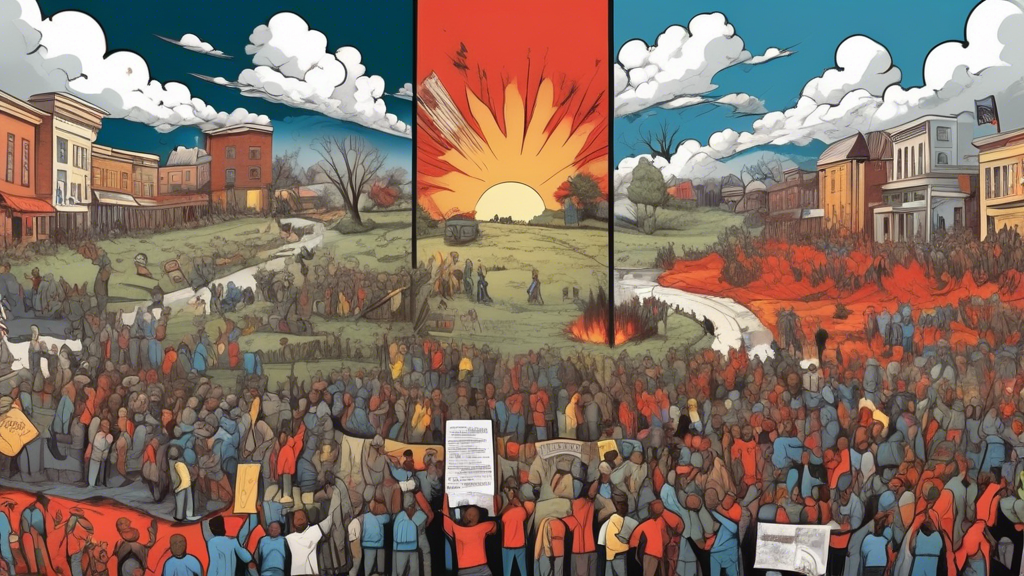
Rising Concerns Over Election Violence and Civil War
In the lead-up to the upcoming elections, fears of election violence and civil unrest have surged among voters across the United States. This anxiety, while not entirely new, has reached unprecedented levels, prompting discussions about the stability of democratic processes and societal cohesion.
Increased Fear of Election Violence
Recent polling data indicates a marked increase in concerns regarding election-related violence. Many voters express apprehension that the upcoming election could resemble previous cycles, where political fervor escalated into chaos. The unease is palpable as citizens recall the violence and unrest that occurred following the last two presidential elections, setting a distressing precedent.
Historical Context
For context, the aftermath of the 2016 election and the events surrounding the 2020 election highlight a troubling trend. Following Donald Trump’s inauguration in 2017, numerous protests erupted, some of which turned violent. Similarly, the January 6 Capitol riot in 2021 stands as a stark illustration of how political tensions can spiral into acts of aggression, reinforcing fears about the stability of future elections.
Civil War Fears
A notable aspect of current societal anxiety is the fear that the nation could descend into a civil war. This sentiment spans the political spectrum, revealing a pervasive concern that divisions within the country have intensified to a breaking point. Unlike fears that are confined to specific political affiliations, this anxiety resonates broadly, suggesting a deep-seated worry about the future of the nation.
Perceived Causes of Violence
Many citizens attribute the potential for violence to several key factors. Former President Trump is frequently cited as a polarizing figure whose rhetoric may incite unrest. Additionally, the role of the media in covering political issues is scrutinized, with critics arguing that sensationalized reporting exacerbates tensions. This interplay of political figures, media, and public sentiment contributes significantly to the rising fears of violence.
Broad Concerns
Concerns surrounding election violence extend beyond high-profile incidents. Societal norms appear to erode, leading to behaviors formerly deemed unacceptable. Instances of protests at the homes of public officials, while often characterized by demonstrators as peaceful, are perceived by many as threatening and intimidating. This normalization of aggressive political expression creates a climate of fear and suspicion.
Impact on Public Life
The pervasive fear of political violence has tangible effects on everyday life, particularly in political hubs such as Washington, D.C. Security measures are more prevalent than ever, with both public officials and ordinary citizens feeling a heightened sense of unease. The atmosphere is charged, contributing to an environment where anxiety and vigilance become part of daily interactions.
Conclusion
This current climate of anxiety surrounding election violence and fears of civil war encapsulates a society that is increasingly divided. With numerous factors influencing these concerns—including political rhetoric, media portrayals, and historical precedents—the path forward appears fraught with challenges. As the nation approaches its next electoral cycle, the pressing question remains: can democracy endure amidst such pervasive fears?
